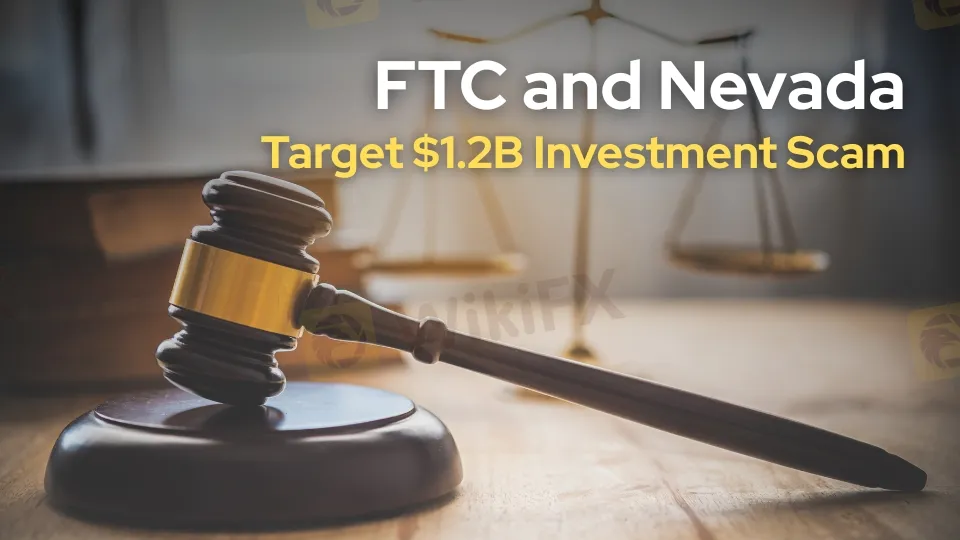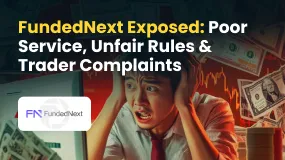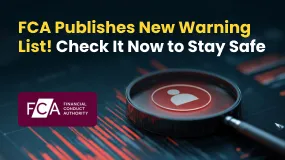简体中文
繁體中文
English
Pусский
日本語
ภาษาไทย
Tiếng Việt
Bahasa Indonesia
Español
हिन्दी
Filippiiniläinen
Français
Deutsch
Português
Türkçe
한국어
العربية
FTC and Nevada Target $1.2 Billion Investment Scam | IML Exposed
Abstract:FTC and Nevada crack down on IML scam, exposing false earnings claims and deceptive multi-level marketing tactics that stole over $1.2 billion from consumers.

The Federal Trade Commission (FTC) and Nevada have launched legal action against a massive investment training and business venture scam, costing consumers over $1.2 billion. The scam, now branded as IYOVIA, previously operated under names like IM Mastery Academy, iMarketsLive, and IM Academy—collectively known as “IML.” Authorities claim IML used deceptive earnings promises to lure consumers into pricey financial training programs and a multi-level marketing (MLM) scheme.
The lawsuit, filed jointly by the FTC and Nevada Attorney General, accuses IML and its operators of making unfounded claims to sell training courses—some costing up to $400 monthly—and encouraging participants to recruit others into the MLM structure. Targeting young adults, IML allegedly exploited social media, including college pages, with posts showcasing fake trading successes and lavish lifestyles.

“This scam‘s scale is staggering, from wild earnings claims to unqualified ’trainers‘ posing as experts,” said Christopher Mufarrige, FTC Bureau of Consumer Protection Director. “It’s hurt countless consumers, especially young people trying to build a future. Were proud to partner with Nevada to stop it.”
IML‘s recruitment often begins with flashy social media ads—think luxury cars and exotic trips—posted by salespeople claiming huge profits from IML’s training. Interested consumers are then pitched at events or via calls, promised riches like retiring in their 20s or earning cash “in your sleep.” Yet, the FTC alleges these “trainers” lack credentials or proof of success, and the earnings claims are baseless. Evidence shows IML keeps no records of customer outcomes, while its own data reveals that 60% of users quit the training within a month, and 90% drop out by six months. Most MLM participants lose money, not make it.
Named in the suit are IML, owners Chris and Isis Terry, and key figures Jason Brown, Alex Morton, Matthew Rosa, and Brandon Boyd. The complaint cites violations of the FTC Act, Telemarketing Sales Rule, Restore Online Shoppers‘ Confidence Act (for the Terrys and IML), and Nevada laws. Filed in Nevada’s U.S. District Court, the case follows a unanimous 3-0 FTC vote to proceed.


Disclaimer:
The views in this article only represent the author's personal views, and do not constitute investment advice on this platform. This platform does not guarantee the accuracy, completeness and timeliness of the information in the article, and will not be liable for any loss caused by the use of or reliance on the information in the article.
Read more
Before You Trade with Quest: 6 Warning Signs to Know
The Forex market is a jungle full of complex trades, high risks, and unpredictable moves. Without the right knowledge, you’re an easy target. In this environment, information is your only weapon. Many scam brokers are out there, ready to take advantage of uninformed traders. In this article, you will learn about another unlicensed broker: Quest.

FundedNext Exposed: Poor Service, Unfair Rules & Trader Complaints
FundedNext has been facing investor ire on forex broker review platforms for the numerous instances of foul play it has been part of. Investors face constant withdrawal issues, unfair and fake rules on trading, and several other issues. All these contribute to scams.

FCA Publishes New Warning List! Check It Now to Stay Safe
FRAUD ALERT! – All investors and traders should be careful. The UK’s financial regulator, the Financial Conduct Authority (FCA), has warned people about fake brokers that are working without a license. These scam brokers take people’s money and disappear. The FCA shares a list of these fake brokers every day to help people stay safe. Checkout the List below to Stay Safe.

Housewife Scammed of RM68,242 in Online Investment Scam
A 54-year-old housewife has fallen victim to an online investment scam after being misled by an advertisement on social media, resulting in a total loss of RM68,242 over 13 separate transactions.
WikiFX Broker
Latest News
Forex Hedging Strategies - Calming You Amid Market Chaos
Key Events This Week: ISM, Trade Balance And More Earnings
What Is Forex Currency Trading? Explained Simply
A Beginner’s Guide to Trading Forex During News Releases
Ultima Markets enters the UK and gains the FCA license
LSEG Announces £1 Billion Share Buyback Program
SEC Lawsuit Targets Real Estate Fraud Scheme by Joseph Nantomah
XS.com Broker Partnership Expands Liquidity with Centroid Integration
ASIC Regulated Forex Brokers: Why Licensing Still Matters in 2025
FCA Publishes New Warning List! Check It Now to Stay Safe
Currency Calculator


